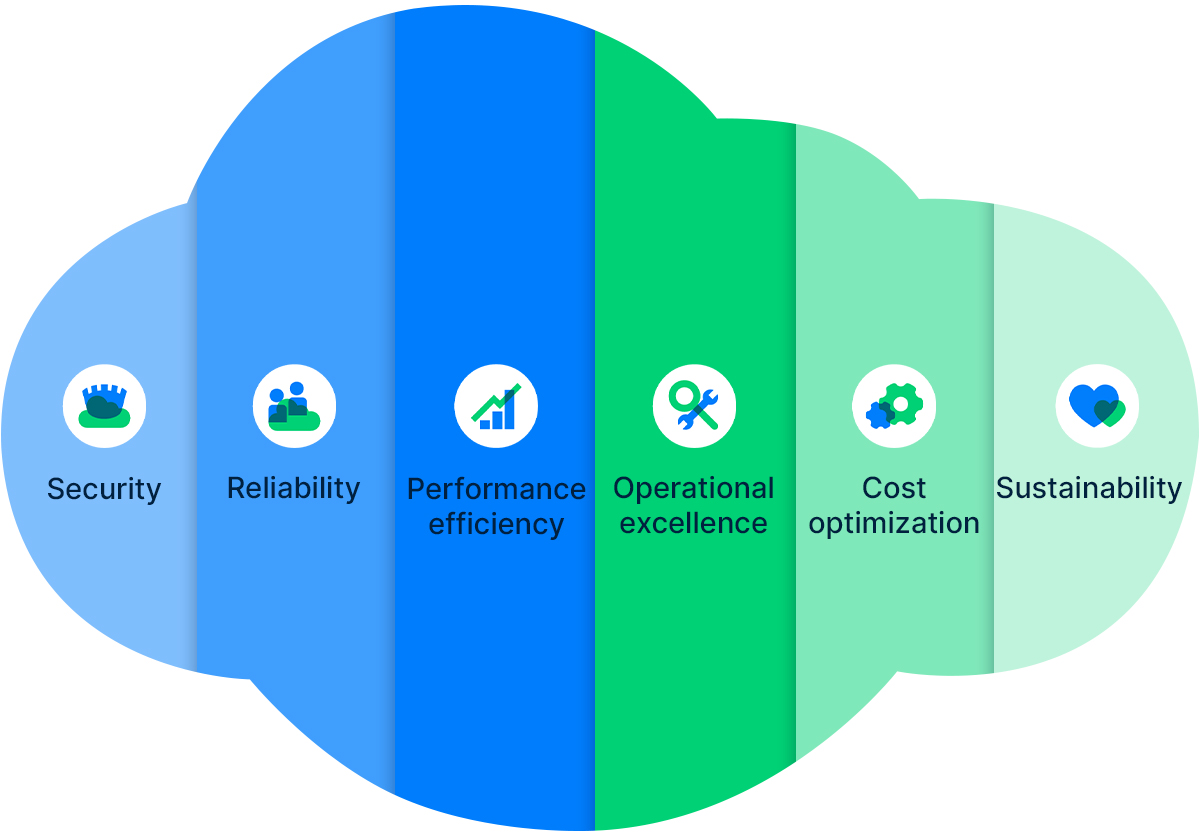Author: David Bevc, Mainstream
When startups first dive into the cloud, costs are usually top of mind. But as you settle in, the challenges don’t stop with the initial sticker shock. New, less obvious obstacles start cropping up—things like consistent monitoring, security updates, performance tuning, and staying on top of your resource usage.
What many don’t realize is that beyond cost, there’s an entire ecosystem of operational concerns that grows in complexity as your business scales. For startups especially, these challenges can be make-or-break moments. Here’s where the Well-Architected Framework and a proactive cloud management approach become critical tools for managing that growth.
Starting with a solid foundation: the Well-Architected Framework
If you’ve been around cloud space, you’ve probably come across the term “Well-Architected Framework” before. It’s more than just a buzzword; it’s a guide for building and scaling your cloud infrastructure with purpose. The framework has five pillars that cover the essentials of a resilient, cost-effective, and secure cloud environment:
- Operational Excellence – Ensures that your systems are manageable and monitorable as they grow.
- Security – Keeps your data and systems secure at every level.
- Reliability – Prepares your infrastructure to handle change and scale seamlessly.
- Performance Efficiency – Balances resources to ensure they’re used effectively.
- Cost Optimization – Ensures that you’re only paying for what you need, when you need it.

For startups, these pillars offer a solid foundation as you navigate the inevitable complexities of scaling. Following the framework helps set up a cloud environment that won’t just run, but that can withstand the pressures of growth without spinning out of control on costs or reliability.
Beyond the foundation: How to achieve operational excellence
While the Well-Architected Framework sets up a solid baseline, it’s just that—a baseline. As you scale, new challenges arise, and the importance of continuous monitoring and maintenance kicks in.
So, how well are you managing your cloud operations?
Sidenote: CloudOps involves managing and optimizing cloud infrastructure and services to ensure performance, availability, security, and efficiency within cloud environments. This is a wide concept that covers a range of tasks which started small and simple, and gradually took over a chunk of your daily efforts, possibly leaving your performance and efficiency stagnant.
Cloud is a dynamic environment, and things change fast - new updates roll out, usage fluctuates, and potential vulnerabilities emerge. Without a consistent operational approach, you’re constantly playing catch-up, which can lead to unexpected costs and performance hits. A proactive approach helps keep your cloud lean, efficient, and prepared for what’s next.
That’s where solutions like 360 CloudOps come in handy. Instead of being trapped in a high-demanding environment that demands more than it delivers, with a strategic approach to cloud operations, backed with expert support, your focus shifts to development and prioritization in the field that will surely push your business forward. Yes, thanks to usage of the cloud, utilized in the right way and strategized to be future proof.
The path forward: Bringing it all together
Having a strong cloud foundation is only half the battle. Long-term success in the cloud requires ongoing attention to infrastructure, backed by a well-rounded, proactive approach. By combining a Well-Architected Framework mindset with continuous operational strategies, you can turn the cloud into a true enabler of growth, not just a line item on your expenses.
This major topic puzzles many startups who began their cloud journey just to be discouraged by this amazing technology, will be addressed at the event Odkrivanje vrednosti v AWS oblačnih operacijah. This small gathering in the form of a business breakfast will tackle the details of well-set cloud operations, critical for growing startup companies.
Seats are limited – apply for the waiting list!









